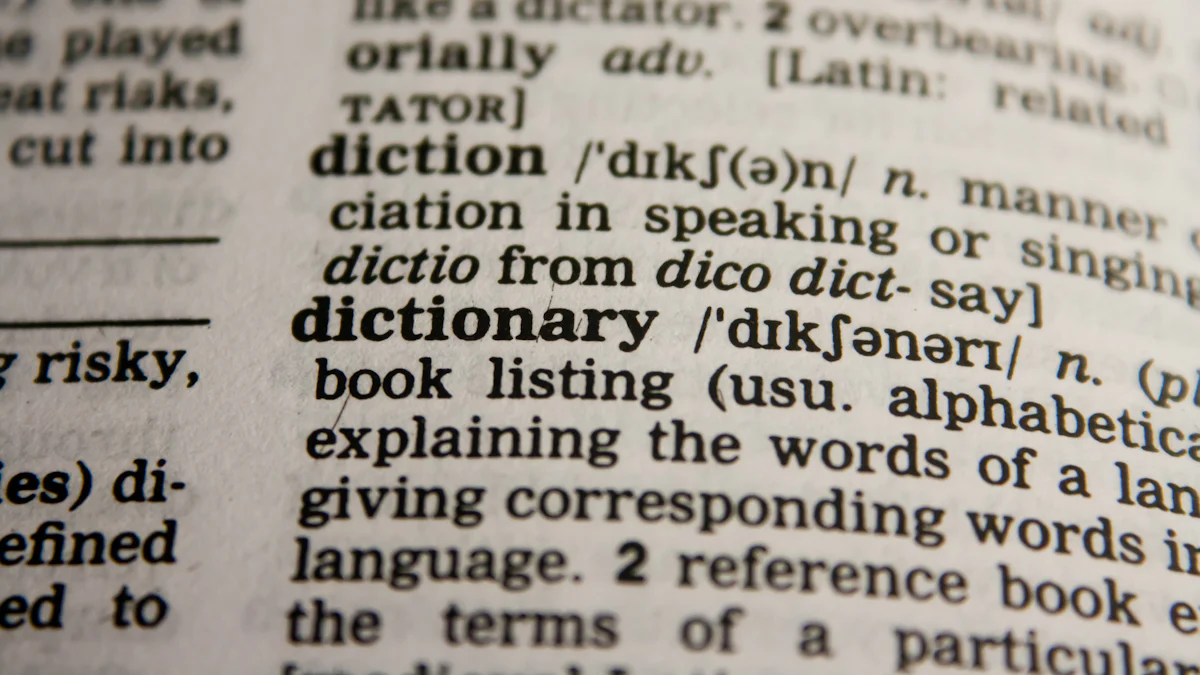What is glossary article

A glossary article serves as a comprehensive compilation of terms related to a specific subject, offering clear and concise definitions for each term. These articles play a crucial role in various fields by enhancing understanding and providing quick references for readers. The primary aim of this blog post is to delve into the significance of glossary articles, shedding light on their benefits and guiding readers on how to create effective glossaries.
Understanding Glossary Articles

Definition and Characteristics
To define a glossary article, it is essential to highlight its purpose in providing clear explanations for terms related to a specific subject. The characteristics that distinguish a regular article from a glossary article involve the structured presentation of terms and their corresponding definitions.
What makes an article a glossary article
An article transforms into a glossary article when it focuses on elucidating the meanings of specialized vocabulary within a particular field. This transformation occurs through the meticulous selection and explanation of key terms relevant to the subject matter.
Key features of glossary articles
The key features that define glossary articles include their organized layout, which arranges terms alphabetically or thematically for easy reference. Additionally, these articles prioritize clarity by offering concise definitions that enhance reader comprehension.
Types of Glossary Articles
When exploring types of glossary articles, two main categories emerge: subject-specific glossaries and general glossaries. Each type serves distinct purposes in catering to the information needs of readers across various domains.
Subject-specific glossary articles
Subject-specific glossaries delve deeply into the terminology unique to a particular discipline or area of study. These articles aim to provide in-depth explanations for specialized terms, aiding individuals seeking detailed insights within specific fields.
General glossary articles
On the other hand, general glossaries encompass a broader range of terms that hold relevance across multiple subjects. These articles offer foundational definitions for commonly used terminology, making them valuable references for individuals navigating diverse topics.
Benefits of Glossary Articles

Enhancing Understanding
Improving comprehension is a key advantage of glossary articles. By providing clear definitions for complex terms, readers can grasp concepts more easily. This enhanced understanding fosters effective communication and knowledge sharing within educational and professional settings.
How glossary articles help in learning
Glossary articles serve as valuable tools for learners by simplifying intricate terminologies. When students encounter unfamiliar terms, referring to a glossary enhances their understanding, enabling them to engage more deeply with the subject matter. This accessibility promotes a conducive learning environment where individuals can expand their knowledge effectively.
Examples of effective glossary articles
Effective glossary articles demonstrate the power of concise definitions in facilitating learning. For instance, in academic research, a well-structured glossary can clarify statistical terms, making data analysis more accessible to readers. Similarly, in professional contexts, industry-specific glossaries streamline communication among professionals by standardizing terminology and ensuring clarity in discussions.
Providing Quick References
Quick access to information is another significant benefit offered by glossary articles. In academic and professional settings, where time is often limited, having a centralized source for definitions expedites research and decision-making processes.
Use in academic and professional settings
In educational environments, students frequently encounter new vocabulary across various subjects. A comprehensive glossary acts as a reliable reference point for clarifying terminology promptly. Likewise, professionals navigating specialized fields rely on glossaries to ensure accurate communication and avoid misunderstandings during collaborations or presentations.
Accessibility and ease of use
The user-friendly nature of glossary articles contributes to their widespread utility. Whether accessed online or in print form, glossaries offer convenient access to definitions without the need for extensive searches. This accessibility streamlines information retrieval processes, saving time and enhancing overall productivity.
How to Write a Glossary Article
When writing a glossary article, the initial step involves thorough research and meticulous selection of terms. This process is crucial for ensuring the accuracy and reliability of the information presented.
Research and Selection of Terms
To begin, it is essential to identify relevant terms that are integral to the subject matter. This entails selecting terminology that holds significance within the context of the article, contributing to a comprehensive glossary.
Identifying relevant terms
The process of identifying relevant terms requires a strategic approach. By considering the core concepts and key elements of the subject, writers can pinpoint terminology that adds value to the glossary's content.
Ensuring accuracy and reliability
Maintaining accuracy and reliability in a glossary article is paramount. Writers must verify definitions through reputable sources to guarantee the correctness of each term included in the compilation.
Structuring the Article
Once terms have been selected, structuring the article is vital for enhancing readability and accessibility for readers. Organizing terms either alphabetically or thematically contributes to a well-structured glossary.
Organizing terms alphabetically or thematically
Organizing terms alphabetically simplifies navigation for readers seeking specific definitions. Alternatively, structuring terms thematically groups related concepts together, offering a cohesive understanding of interconnected terminologies.
Providing clear and concise definitions
Clarity is key when providing definitions within a glossary article. Writers should aim for concise explanations that convey the essence of each term without unnecessary complexity, ensuring reader comprehension.
Adding Context and Examples
Incorporating context and examples enriches the depth of understanding for readers engaging with a glossary article. These elements offer practical insights into how terminologies are applied within their respective contexts.
Using examples to illustrate terms
Utilizing examples effectively elucidates complex terminologies by showcasing real-world applications. Through practical instances, readers can grasp how specific terms are utilized in different scenarios, reinforcing their comprehension.
Providing additional context for better understanding
Offering additional context alongside definitions enhances reader engagement with the material. By providing background information or situational relevance, writers can ensure that readers develop a holistic understanding of each term's significance within the subject domain.
In summarizing, glossary articles serve as invaluable resources in simplifying complex terminologies across various fields. By offering clear definitions and enhancing understanding, these articles play a vital role in knowledge dissemination. Encouraging the utilization and creation of glossary articles fosters effective communication and learning experiences. The impact of glossaries extends beyond mere definitions; they provide quick references that streamline information retrieval processes for readers. Embracing the significance of glossary articles contributes to a more informed and interconnected community.
See Also
Understanding the AI Knowledge Base: Applications and Features
Exploring Product Landing Pages: Definition, History, Features
Decoding Landing Pages: Definition, Features, Future Trends

